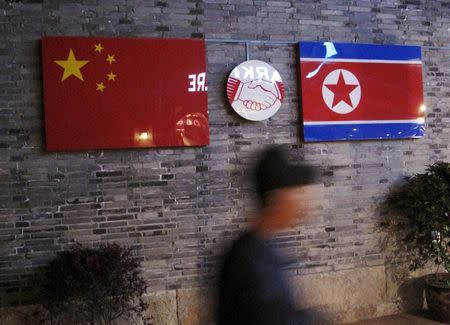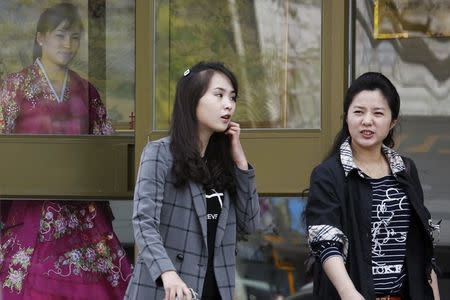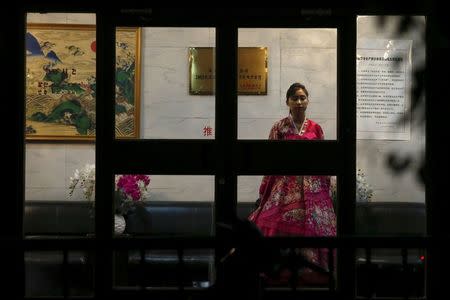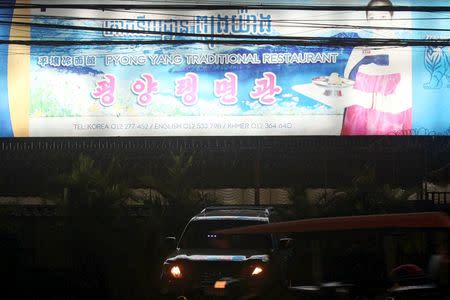North Korean restaurants: like the country, suspicious and in crisis
By Eveline Danubrata and Damir Sagolj JAKARTA/BEIJING (Reuters) - At a North Korean state-run restaurant in the Indonesian capital Jakarta earlier this week, the usual song and dance dinner performance by the waitresses was canceled, because there were fewer than 10 customers. Some North Korean restaurants across Asia have closed down and demand is lackluster at others - like the country itself, the establishments seem to be going through a crisis. Staff are suspicious of too many questions. There are about 130 North Korean restaurants overseas, staffed and operated by workers from North Korea, most of which remit revenue back to Pyongyang. Many are in China while there are others in Indonesia, Thailand, Cambodia, Vietnam and the Middle East. One, in the Chinese city of Ningbo, was in the news after the North's Red Cross Society identified it as the restaurant from where 13 staff members left for South Korea last week. South Korea has not said where the 13 were before entering the country, although media reports have said they defected via a Southeast Asian nation. Pyongyang called it a "hideous" abduction by agents from the South. The restaurants are one of the few sources of hard currency for impoverished, sanctions-hit North Korea, generating roughly $10 million a year, according to South Korean estimates. Some of the restaurants are reported to have been suffering since harsh new United Nations sanctions were announced against Pyongyang in March following its recent nuclear and missile tests, although the restaurants were themselves not targeted in the U.N. resolution. South Korea last month discouraged its citizens from eating at North Korean restaurants abroad. Business was not good at the restaurant in Ningbo, and some residents said it had been shut months ago for renovations. One of two North Korean restaurants in Jakarta has also been closed down while another in Bangkok had a sign on the door saying it was shut until April 20 for renovations. The Pyongyang Restaurant still open in Jakarta is in the crowded Kelapa Gading area in the north of the city, wedged between offices, a bank and other eateries. "No photos," said one of the waitresses, dressed in a pink and black uniform, when a customer took out a camera. Tables were separated by wooden screens, so guests couldn't see each other, but there were few customers for dinner when a Reuters team visited. Instead of the song and dance routine, a North Korean concert was being shown on a television, a South Korean branded LG set. The waitresses, who spoke limited Bahasa Indonesia, declined to answer most questions. But asked who owned the restaurant, one of them said: "All North Koreans". Asked if that meant the government, she nodded. BETTER IN BEIJING In Beijing, the Pinsanguo Restaurant, formerly called the Pyongyang Rungrado, appeared to be doing better. Its 20 tables in the main room were half-full on a weekday night and a short song and dance show was performed at dinner-time. A smaller room was empty. A meal for two, including two North Korean beers, North Korean kimchi and barbecued meats, was priced at 450 yuan (about $70), which is expensive by Beijing standards. But asked how business was doing, a waitress said: "It's not that good". Many of the waitresses at the North Korean state-run restaurants overseas are chosen from a pool of graduates at the Pyongyang University of Commerce, where they learn to cook, sing, play instruments and dance. Loyalty to the regime is a major consideration for being chosen to go overseas. Once abroad, they are discouraged from mingling, live mostly in groups and are guarded by security officials. In Jakarta, the Pyongyang Restaurant is spread over three floors, with customers discouraged from going to the top floor. A Chinese businessman who was behind the restaurant in Ningbo until about six months ago, said the employees lived in a dormitory and were provided food. At the Beijing restaurant, all the staff were female, except for a man who brought charcoal to the table for the barbecue and a man in a leather jacket who watched proceedings throughout from a corner of the room. (This story has been refiled to say 'members' instead of 'member' in paragraph 4) (Additional reporting by Yuddy Cahya in Jakarta and John Ruwitch in Ningbo; Editing by Raju Gopalakrishnan)





